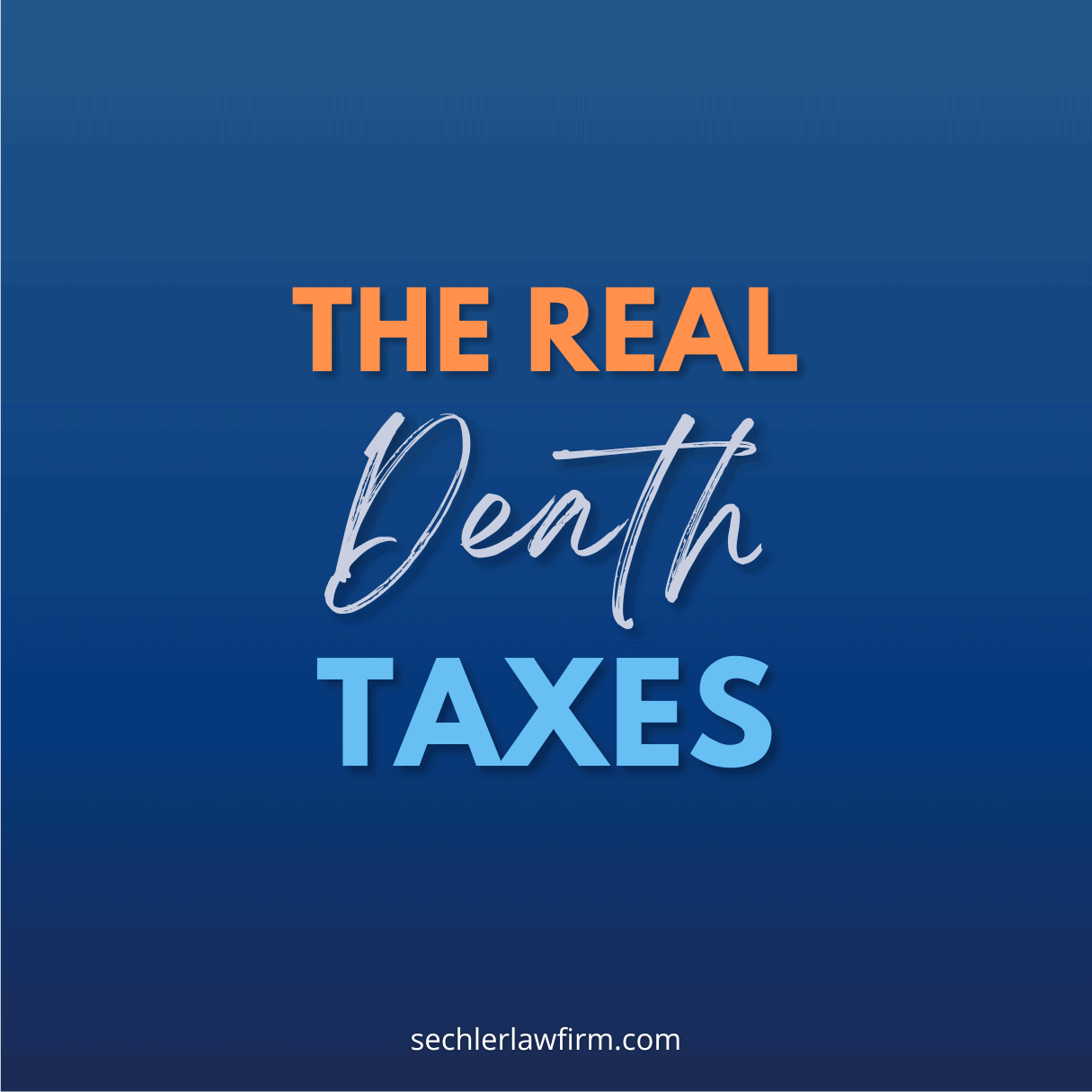People often ask me about taxes, and I understand their concern. I appreciate they don’t want to pay any more money in taxes, and I certainly don’t want to give the government any more money. I am sure many people feel they would prefer to give the money to their kids. That is why it’s important for you to know more about the four death taxes that apply to Pennsylvania residents. Only three of the taxes apply in other states, but Pennsylvania also has inheritance tax.
The four taxes I want you to know about, with regard to your estate plan, are the Federal Estate tax, the Pennsylvania Inheritance tax, the Capital Gains tax and the Secure Act.
The Federal Estate Tax
The Federal Estate Tax does not apply to middle-class Americans. The current exemption allows for you to die with up to $12.9 million each. That would be $26 million for a married couple. Everybody asks about federal estate tax because in the 1990’s, the lifetime exemption was below 1 $million. As a result, many people were affected in the 90’s. Fortunately since then the exemption allowance has been increased.
The Pennsylvania Inheritance Tax
The Pennsylvania ‘death’ tax is an inheritance tax, owed by the people inheriting the money. Your relationship to the person who passed away, determines the amount of tax you pay. When you leave money to your descendants, including your kids and grandkids, they will pay 4.5% tax. Leaving money to your ascendants such as your parents or grandparents is also 4.5% tax.
If you don’t have kids, and you leave money to your siblings, they will pay 12% tax. Leaving money to anyone else, including nieces, nephews, friends or neighbors, requires they pay 15% inheritance tax. This is substantial amount of tax to pay. However, to avoid your heirs paying any tax, you have to give up control of your money, which I advise my clients not to do. Pennsylvania inheritance tax rates for siblings or nieces and nephews, is discriminatory. Essentially, we are also discriminating against couples who can’t have children. This is particularly relevant in families where a couple without children, who wants to leave money to their nieces or nephews. It doesn’t seem fair that the inheritance tax rate is 15%.
Rather Pay Inheritance Tax than Capital Gains Tax
There is this idea among seniors, who think that putting their house in their kid’s name to save their kid paying 4.5% inheritance tax, is a good idea. What they don’t realize is that it is preferable to pay the Pennsylvania inheritance tax, compared to paying capital gains tax. I believe that if your child is going to inherit $100,000, he can afford to pay the 4.5% inheritance tax. You should not have to be concerned about saving him 4.5%.
Capital Gains Tax
A capital gains tax is due upon the sale of an asset that has grown in value. If dad bought his primary residence for $100,000 and he sells it for $300,000, the gain of $200,000 is largely exempt from capital gains tax. If dad gives the house to his son, his kid owns it for $100,000. Assuming that dad has to go to the care home a few years later, his son sells the house to pay for dad’s care. Since the house is not the son’s primary residence, he has to recognize a $200,000 capital gain. The same principle applies to rental properties if they are not the primary residence of the person selling the property. Essentially, this family made a $54,000 tax mistake, given that the rate of capital gains tax is 18%.
If you leave assets in your estate until you pass away, and it is held in a trust, your kid inherits the assets at date of death. While your child will pay Pennsylvania’s inheritance tax which will be $13,500, the stepped up basis is applied. This means that the house that Dad bought for $100,000, is now worth $300,000. His son has inherited the house for the date of death value, which is $300,000. He is allowed to sell it for $300,000 without having to pay the capital gains tax.
The Secure Act
Another tax you need to know about is the Secure Act, which passed in October of 2019 and became law in January of 2020. This is the biggest tax hike against the middle class.
Most middle class Americans have all of their money in home equity and retirement accounts. If you have a retirement account, an IRA, or a 401k, this Secure Act will affect you.
Before the Secure Act was implemented, if my dad passes away, leaving me his retirement account, it becomes my retirement account, known as the inherited IRA. This meant that money could stay in the stock market with tax deferred growth for several decades. I would need to take distributions at regular intervals, but most of the money would stay in the fund.
Since the Secure Act, the rules have changed significantly. Now, when you pass away and you leave your retirement account to your kid, he has to pull all the money out of the account, within 10 years. This means that one loses out on many decades of tax deferred growth. In addition, if you inherit the money when you are 55, you are likely still working and paying high income tax. Now you have to add your dad’s 401k which means you’ll be paying even more income tax.
Let Us Help You
If you want to learn more about how to protect yourself and your legacy, come to one of our Three Secrets Workshops. Call 724-841-1393 or visit sechlerlawfirm.com/workshops to register for a workshop.









